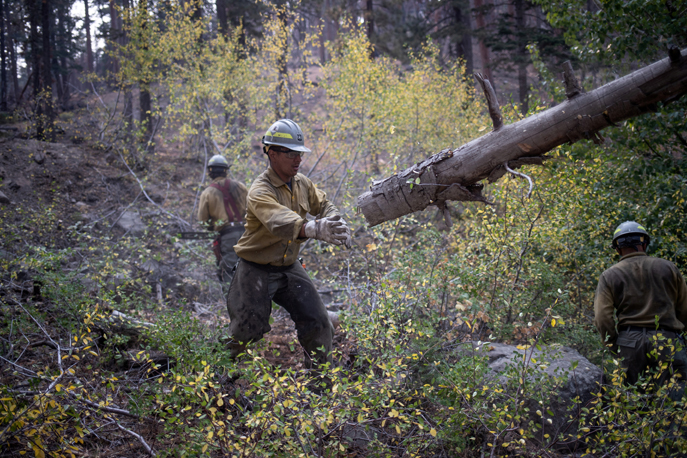Comment: Ling Sin Fai Lam of CDP says there is an urgent need to hold cattle and soy industries to the same high standards set for other forest risk commodities in supply chains
Whilst consumer goods companies have come under increasing pressure to address deforestation in their supply chains, the same cannot be said for commodity producers operating on the ground.
More than 80% of deforestation globally is driven by four forest risk commodities (FRCs): cattle, soy, palm oil and timber, but producers of these commodities – which are relied upon for consumer staples – need to up their game. FRC companies are more distanced from end customers than fast-moving consumer goods (FMCG) companies and are therefore not always held to account, despite their proximity to the land itself.
Building on CDP’s previous research on the deforestation impact of FMCG companies, our latest report for investors, Zeroing-in on Deforestation goes a step further in the supply chain to shine a light on the agricultural companies producing palm oil, timber, soy and cattle. Our analysis of 27 of the largest and highest-impact traders and producers of these FRCs reveals that producers are not doing enough to prevent ongoing deforestation. This is of particular concern when it comes to soy and cattle, with producers of these commodities faring most poorly.
A lack of transparency and traceability within the supply chain has emerged as a key stumbling block for soy and cattle producers
Despite cattle being 400 times more land intensive than palm oil, and soy over eight times more intensive, palm oil has been in the public spotlight in recent years, and is often thought to be the biggest contributor to deforestation.
However, our research found that palm oil and timber companies are held accountable to higher standards for tackling deforestation than soy and cattle. Sime Darby plantation, which performed the best amongst palm oil producers, allows for public scrutiny of its supply chains via an open-online access tool, and 98% of its estate has been RSPO-certified. Across the 10 timber companies analysed, an average of 73% of timber supply is certified as sustainably produced to FSC or PEFC standards.
Palm oil mills and timber companies directly produce a larger proportion of their supply than soy and cattle companies: 44% of total timber supply is produced on land that companies own or lease long-term, and the 10 palm oil companies we analysed manage 47% of the total land certified by the Roundtable on Sustainable Palm Oil between them. This capacity for direct production allows firms to limit the risk of deforestation directly.

However, a lack of transparency and traceability within the supply chain emerges as a key stumbling block for soy and cattle producers. There is almost no visibility as to where cattle are bred or reared, and only three soy companies were able to fully map their supply chains. This leaves both industries highly exposed to the risk of deforestation occurring unregulated within their supply chains.
Furthermore, all cattle and soy companies in our sample continue to operate within the Amazon biome, which has the highest rate of tree loss in Brazil. This has been heightened since 2019 by the president Jair Bolsanaro’s rolling back of environmental legislation, which protected the rainforest, a move that prompted outcries from FMCG companies, investors and environmental advocates alike. Such actions make commodity producers’ individual responsibility for their complex supply chains even more urgent.
The scale of the initiatives taken to halt deforestation is also far smaller in the soy and cattle industries. Whilst 50% of palm oil companies are engaging in multi-stakeholder partnerships to tackle illegal deforestation and improve the sustainability of agriculture at scale, soy and cattle companies’ innovations are limited to small-scale incremental initiatives.
Efforts to combat deforestation must cover the entire supply chain, not just those companies closest to the consumer
This failure to address supply chain concerns leaves companies open to material financial risks and vulnerable to regulatory action and enforcement, with deforestation fast becoming an issue investors are engaging with and voting on. A recent example of this is the shareholder revolt Proctor & Gamble faced from large institutional shareholders earlier this month, who called for the company to do more to protect forests, with investors suggesting that some of its suppliers have been “tied to illegal deforestation”.
With an increasing focus on environmental issues globally, pressure on FRC producers will soon come not only from consumer goods companies examining their supply chains and investors wanting to protect their capital, but also from governments and regulators. Indeed, deforestation is fast becoming a political issue, with the UK government proposing that large companies face substantial fines if they cannot prove their supply chains are free from illegal deforestation.
In this context, FRC producers will be forced into the spotlight. However, by addressing issues within their supply chains now, they can protect themselves, improve the sustainability of commodity production long term, and tackle deforestation at ground level. And as global pressure mounts on large corporations to reduce their environmental impact, it is clear that empty commitments will not suffice. Efforts to combat deforestation must cover the entire supply chain, not just those companies closest to the consumer.

Ling Sin Fai Lam is senior analyst at CDP.
CDP forest risk commodities FRC FMCG supply chains Palm Oil timber Soy cattle Amazon FSC

